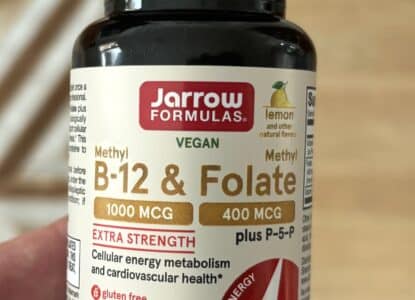Probiotics Can Reduce Stress and Improve Mood. Here’s Why

Contents
Cognitive impact of probiotics
Dubbed “psychobiotics,” these probiotic strains could be part of the way we treat anxiety and depression in the future, as well as chronic conditions like IBS, which are tied to imbalances in the gut-brain axis. One of those strains, Bifidobacterium longum (B. Longum), is the focus of my post today. B. Longum is one of the leading probiotic strains associated with cognitive enhancement. As I noted in my tumor post, the science surrounding the microbiome is new and emerging, and as such, many of the studies have been performed on mice. However, the first study I want to focus on here looked at the impact of a specific strain of B. Longum (1714) on brain activity patterns, cognition, and the stress response in humans. The double blind and placebo controlled study appeared in the Journal of Translational Psychiatry. This wasn’t a probiotic blend, the authors only evaluated the impact of just this single strain of bacteria: B. Longum 1714. 1 It’s also worth noting that the authors used male subjects, as menstrual cycle can impact cortisol levels, and prior use of probiotics excluded subjects, most of whom ended up being medical students. This was also a small study at just 22 participants.Impact on probiotics on stress
The findings on stress were interesting. Study subjects taking B. Longum had a lower amount of stress in response to a stressful event as well as lower levels of daily reported stress. Cortisol levels dropped after administration of B. Longum 1714.The psychobiotic effect on the acute stress response is complemented by a reduction in daily perceived stress that is consistent with previous findings that a probiotic intervention can affect subjective everyday stress.
Probiotics impact on cognitive performance
Subjects administered B. Longum 1714 showed subtle improvements in visuospatial memory as well as enhanced prefrontal cortex activity (the part of the brain linked to willpower) based on an electroencephalogram (EEG) test. So, bottom line, B. Longum, or at least B. Longum 1714, was shown to reduce stress and modestly improve beneficial brain activity. For a couple years, the Translational Psychiatry study (“TS study”) stood alone. But a study was published in 2019 which seems to back up the findings of the TS study.Published in the American Journal of Gastroenterology, researchers evaluated again the impact of B. Longum 1714 on mental health, with the focus this time being social stress. In the study, which was placebo controlled and double blinded, those administered B. Longum 1714 showed less stress and greater resiliency in response to a social isolation / rejection simulation designed to induce stress. Improved performance was confirmed using brain imaging. To quote the study authors:
During the resting state, B. longum 1714™ induced an increase in theta band power in the frontal and cingulate cortex and a decrease in beta-3 band power in the fusiform cortex, hippocampus, temporal cortex, and cerebellum. Although no significant change of SF36 was noted after the 4-week probiotic intake, the increase in theta band and decrease in beta-3 band power found in the resting state was associated with increase in perceived energy/vitality levels, as assessed by the SF36.




I’m new to probiotics. Do you need to take the Longum strain every day? Because on a logical standpoint we would think that once the bacteria is in your gut. It would stay there and reproduce the same way the other bacteria in your gut currently do. Am i missing something?
There is a new product called Zenflore that contains B. Longum 1714 along with some B vitamins. I can tell you that it is more effective than any probiotic I’ve tried but I have not yet used BB536 so cannot make any comparison. I have severe issues with histamines and 1714 fixes them instantly about 20 minutes after ingesting.
The only side effect I have is the Zenflore makes my eyes drier so maybe it is starting some bodily processes that demand large amounts of Omega 3 as a cofactor.
How hard is it go get one’s hands on a strain? And, how hard is it to grow in milk/yogurt?
Does the word Moringa in the name of the strain, B. Longum BB536, indicate that it’s found in Moringa?